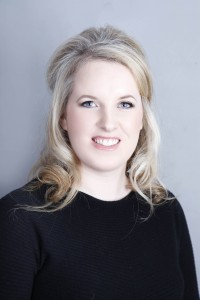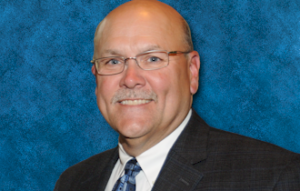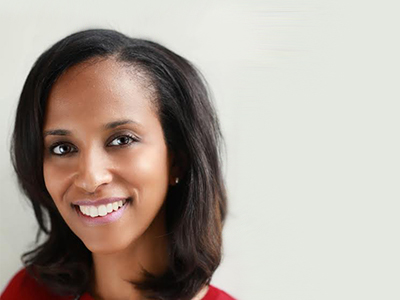 “You don’t have to be 100 percent qualified in every aspect of a job to know you can do it well,” says Aoife Flood, senior manager for PwC’s global diversity and inclusion program. “You want to grow and be challenged, so don’t be afraid to put your hand up even if you don’t feel you tick every box.”
“You don’t have to be 100 percent qualified in every aspect of a job to know you can do it well,” says Aoife Flood, senior manager for PwC’s global diversity and inclusion program. “You want to grow and be challenged, so don’t be afraid to put your hand up even if you don’t feel you tick every box.”
That philosophy has shaped Flood’s career at PwC. Unsure what she wanted to do, Flood began her career, as she puts it, “at the very bottom of the chain.” But for her, it became a powerful awakening. “I had struggled with my confidence, and at first I was intimidated by how highly educated all my colleagues were. But, I embarked on part-time studies and started to raise my hand to see if I could help design or deliver a program, and that’s when my trajectory started to shift.”
After five years with PwC Ireland, she saw an opening for a global opportunity but the position was more senior than hers. However, something about the job posting made her think the role was for her. She spoke to her director about why she thought she thought it would be a good fit. Though the director managed her expectations, she encouraged her to take a chance. Flood applied, creating an entire appendix that included a portfolio of all the work she’d done, and was offered what was described to her as a “courtesy interview,” given the effort she’d put in since she was the least-qualified candidate.
During the interview, Flood says she felt surprisingly calm, and they ended up talking for two hours. Three more interviews followed and she secured the position, which started with a six-month international assignment in Boston. “It was the first time I took a really brave step, and I still sometimes wonder who that person was,” she says.
Only 25 at the time, she had never lived outside her family home much less lived abroad. Once she arrived, it proved tougher than she had imagined as it was a new role that didn’t have a large team, so at times Flood felt very isolated.
“Through that experience I realized how it feels to be brave, which has made me less career risk averse. In fact, now I grow bored when I’m inside my comfort zone. I found out that variety is the spice of life in my career.”
She subsequently moved into her next global role, her first management position and then moved into global diversity. With every role at PwC, Flood feels she has had the opportunity to facilitate positive cultural change which is very important to her.
Growing Through New Assignments
Not only did that first global experience earn her a coveted position, it earned Flood her first sponsor as well. The initial interviewer, Coeni Van Beek, became the global ethics and business conduct leader at PwC and continued to monitor her progress. After three weeks of being in Boston, he told her that she was already outperforming what he had expected.
“I will make sure you’re a manager by the time you finish this tour of duty,” he said, and followed through on the promise by advocating for Flood when she was interviewing for her next position. “The team had concerns since I didn’t have any technical expertise, but he told them that they needed to take a chance on me and would not regret it.”
Right now, Flood is excited about a recent thought leadership research project she delivered focused on the female millennial, having led the project from initial concept through execution. “As a millennial woman it’s fascinating to take something from my own experience and help shape the end deliverable.”
In her current role, she also co-authors PwC’s Gender Agenda blog. Flood identifies that being positioned as a global expert with a strong external profile has also had a catapulting effect on her internal profile. While she had a very strong internal global network at PwC based on those she had worked with during her career, this external profile has really strengthened her profile with those she had not been exposed to through the course of her career. “It’s been really powerful for me to change their mindset of me in my starting position to a global diversity expert.”
Ultimately, she believes that success lies in being willing to take on stretch assignments, being passionate about what you do and willing to deliver more than is expected.
Role Models Shape Her Professional Success
Her first role model is her mother, who works but doesn’t have a “career,” per se. Flood says her mom grew up in an economic climate in Ireland where she did not have very many opportunities, but she always advocated for her four children to have opportunities she didn’t have. Specifically, she encouraged Flood to enroll in speech and drama classes as a child, which although she didn’t like them at the time, increased her comfort level with speaking. “My mom is a very powerful role model of resilience in the face of adversity.”
At work, Flood cites her current bossAgnès Hussherr, whom she says is the perfect role model of someone who can have it all: a leader, who is quintessentially female but strong and successful, has a family and even managed to become a pilot in her spare time.
Reading and Writing Are Passions Outside of Work
Flood has always enjoyed reading and loves to go on holiday with her Kindle loaded with books. But over the past few years she’s been surprised to find how much she enjoys writing. Over the course of writing many papers and a 30,000-word dissertation during an executive master’s program she completed three years ago, she discovered she had a flair for it so she appreciates that her current role provides her the opportunity to write. “I didn’t know what I wanted to be when I grew up but now I do – a writer. And if I won the lotto tomorrow, I’d quit and write for fun!”
By Cathie Ericson


 Seble Tareke-Williams describes her professional path as nontraditional, but each step has been vital to creating her current career, which combines her real estate investing acumen with her passion for community development.
Seble Tareke-Williams describes her professional path as nontraditional, but each step has been vital to creating her current career, which combines her real estate investing acumen with her passion for community development.

